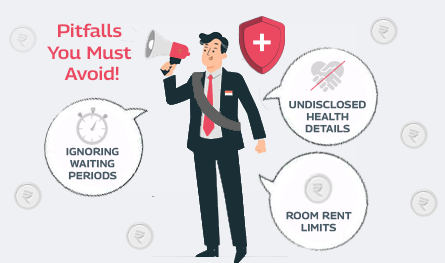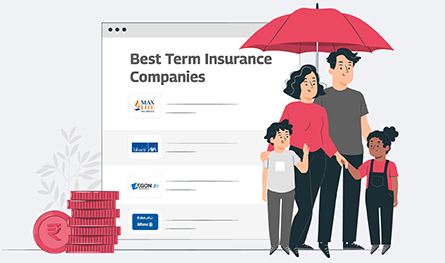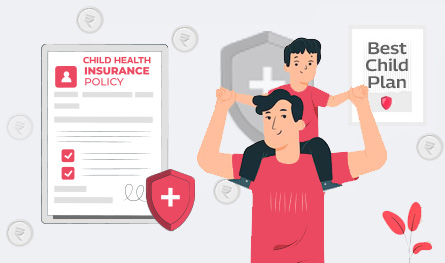Related Articles
 Jan 08, 2025
Jan 08, 2025
Is Varicose Vein surgery covered under the health insurance policy in India
 Health Insurance
Health Insurance
.png)
Terminal illness, also known as critical illness, is a serious health condition that may affect anyone at any stage of life. Critical illnesses or health conditions, such as lung disease, kidney impairment, cancer, heart stroke, and the like, have been known to impact people of all age groups. In such cases, the treatment process generally lasts for a very long time, sometimes lifelong, thereby ending up burning a hole in the patient’s pocket. This is where the critical illness cover in health insurance plays a crucial role in covering the medical expenses incurred on such long-term treatments.
.png)
A critical illness or terminal illness cover in medi-claim is designed to offer financial protection to the policyholder in case he/she gets diagnosed with a life-threatening health condition. A few examples include cancer, heart stroke, lung disease, and more. In such cases, the disease or illness is likely to result in death and therefore it is termed fatal or critical illness.
It is inevitable then that the treatment duration and process for such health conditions lasts for a long time, sometimes for the entire life of the patient. It is therefore bound to be highly expensive and sometimes even unaffordable for the patient’s family.
To help provide financial protection to the family in these times, most insurance companies offer a critical illness cover. This cover benefit is either provided in conjunction with a term insurance or life insurance policy or as an add-on rider benefit with the base health insurance plan to the policyholder.
As is evident from the name, a critical illness cover is designed to provide financial aid to the insured in the case of a severe or terminal illness with a probability of death. Most critical or terminal illness covers offer protection against a number of critical illnesses, some of which include:
All of the above conditions are likely to threaten the life of an individual and hence require timely treatment. The time taken for the condition to be treated might extend beyond expected and therefore it is imperative for everyone to buy health insurance with critical illness cover to insure the life of their loved ones.
In the above section, we had the terminal illness cover explained in detail. Now let us take a look at everything you need to know about terminal and critical illness covers before buying one in your health insurance plan:
Similarly, the insurance company would also provide for a survival clause. Under this plan, the insured is required to survive or stay alive for at least 30 days after the disease has been diagnosed. It is only upon completion of the 30-day period that the policyholder can file a claim. It is imperative to check for both these clauses before buying the critical illness cover.
A common question that is bound to arise in the mind of a policyholder is whether a critical illness cover is the same as a terminal illness cover or different. Part of the confusion stems from the fact that the terms ‘terminal illness’ and ‘critical illness’ are sometimes interchangeably used.
Here we understand the difference between critical illness and terminal illness and how the two health insurance covers are different too. The prime difference between the two types of covers is that a terminal illness cover is issued to the policyholder when the diagnosis suspects the life expectancy of the patient to be even less than a year.
On the other hand, a critical illness cover is designed to offer financial protection to the insured only in case of a critical health illness. A few examples would include a specific prolonged injury or serious illness, the treatment of which is bound to be prolonged.
Young and healthy? Find out which of these plans rewards you with lower premiums. Click here to check now!

Paybima Team
Paybima is an Indian insurance aggregator on a mission to make insurance simple for people. Paybima is the Digital arm of the already established and trusted Mahindra Insurance Brokers Ltd., a reputed name in the insurance broking industry with 21 years of experience. Paybima promises you the easy-to-access online platform to buy insurance policies, and also extend their unrelented assistance with all your policy related queries and services.


Health insurance plans are purchased with the hope of medical protection in times of need. However, sometimes it ends up being a source of surprise and disappointment. This mostly happens when people rush to buy health insurance plans, often overlooking essential aspects. Ignoring waiting period clauses, misunderstanding exclusions, and being unaware of sub-limits can lead to unwanted problems in the future.


Term insurance is an important investment. However, with the availability of so many insurers offering term plans, it becomes difficult to select the best term plan to suit your needs. Buying a term plan needs some consideration and research on the part of the policyholder. In this post, let us discuss the best term insurance providers in India.


If you think of life insurance, chances are you are picturing something people buy in their 30s or 40s. But what if you are 65 or older and just getting started? The good news is that you are never too late. Whether you are thinking of easing the financial burden on your family, covering final expenses, or simply leaving behind a legacy, there are life insurance options tailored just for you.
This article will be a guide to life insurance for senior citizens above 65 years, explaining why it is important, the type of insurance options, and how to get the right policy for you.


As any parent will tell you, kids come with two things: endless energy and absolutely no sense of self-preservation. From scaling chairs and tables like mountaineers to catching germs within a five-mile radius, kids really know how to keep everyone on their toes. Now, it is understandable you are worried. As much as we would love to wrap our small ones in cotton wool and keep them safe forever, real life has other plans.

.png)
It is very important to know the car insurance cost in India so that you can find the affordable policy that you are looking for in this case.
